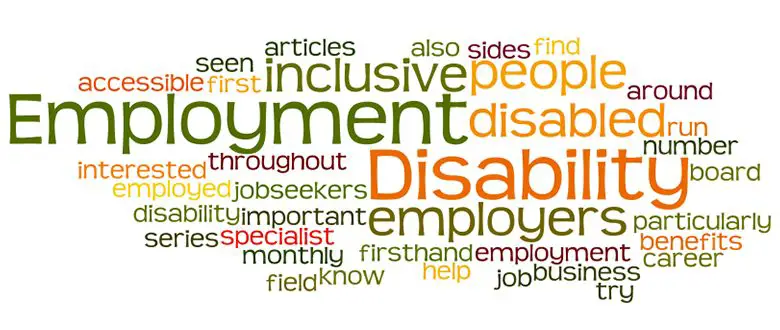
Employment and disability: doing the obvious in 2015!
Jane Hatton, who manages Evenbreak, a not-for-profit job board run by disabled people for disabled people, publishes her monthly article on the subject of employment and diversity. This month Jane shares the new year resolutions she has made for 2015.
#DHgurus
 I would like to wish all readers of Disability Horizons a very Happy New Year, and I hope everything you wish for comes true in 2015. This led me to thinking about new years’ resolutions, and particularly for those of us that are disabled. We all want to improve our circumstances and make life easier, and often we already know how to do that. But knowing it and doing it are two different things (a bit like we all know that in order to lose weight we need to eat less and move more, but that knowledge doesn’t make it any easier!).
I would like to wish all readers of Disability Horizons a very Happy New Year, and I hope everything you wish for comes true in 2015. This led me to thinking about new years’ resolutions, and particularly for those of us that are disabled. We all want to improve our circumstances and make life easier, and often we already know how to do that. But knowing it and doing it are two different things (a bit like we all know that in order to lose weight we need to eat less and move more, but that knowledge doesn’t make it any easier!).
So I’m making some resolutions for myself which I thought I’d share, as they might be useful for anyone in work or looking for work. These are all things I already know, but I definitely don’t do them often enough. These are for people dealing with chronic pain like me, but I think they apply to most disabled people, whatever their impairments. See what you think.
Pacing myself
I know that if I push myself too hard there will be a price to pay in terms of extra pain for a few days. I also know that if I do too little I feel fed up that I haven’t achieved anything. The easy answer is pacing – do the right amount of activity every day. I resolve not to push myself too hard on the days when my pain is bearable (tempting), but to make sure I do something active even on bad days (difficult). This will even out the extremes – frantic activity or staying in bed not moving! This works for people in work (make sure you have a sensible discussion with your manager about workload management – in doing so you will accomplish much more without doing yourself in).
Focusing on what I can do, not what I can’t
There are lots of things I can’t do. Some of these are down to my spinal condition, for example I can’t sit for longer than a few minutes or walk very far. Some of these are about things I couldn’t do anyway, like speaking Russian, or flying a jet plane. There is nothing to be gained by dwelling on any of these issues. It can be depressing, and doesn’t change the situation. However, focusing on those things I can do – using a computer, ‘phoning people, running a business, writing blogs like this (!) is much more helpful, and also quite uplifting. When I think about what I can do, I surprise myself sometimes! When looking for work, it’s a good idea to identify all the skills and abilities you do have, and go for jobs that require those qualities.
Accepting my limitations
This seems to contradict the previous point, but accepting something means you are free to do a number of things. You can just forget about it, and focus on what you can do, as above. Or you can find creative ways round obstacles in order to still do something, but differently (e.g. my colleague can’t work for two hours continuously because of his chronic fatigue, so he breaks it up into chunks of twenty minutes at a time). Or you can ask for help (see below).
Asking for help
There is nothing wrong with asking for help when we need it. My guess is that we spend a lot of time helping others in various ways, and receiving help is not a sign of weakness. Whether this is having Personal Assistants to help us with some tasks, or asking a colleague to lend a hand, it’s fine. No-one minds as long as you don’t abuse it. Similarly, asking your employer for adaptive equipment or flexible working is not a sign of weakness, it is finding ways to do your job more effectively, and far preferable to an employer than stubbornly struggling on and making a mess of it.
Having realistic expectations
There is a fine balance between setting ourselves goals we will never accomplish and assuming we will never achieve anything. Both of these are setting ourselves up to fail. I’m never going to run a marathon (or run anywhere, for that matter!), so that would be a pointless goal. But if I then give up and believe I can’t achieve anything, then that’s exactly what will happen. I resolve to set myself achievable, but stretching goals. Things I could do with some effort and application, and will feel great when I’ve achieved them. In the workplace it’s important to be clear about what you can achieve. Don’t agree to goals you know you can’t achieve, but challenge any assumptions that you aren’t capable of achieving anything.
None of this is rocket science, but I still find myself falling into these traps every so often. Do you have any tips or advice that you have found useful?
For browsing job vacancies, please visit Evenbreak. All Evenbreak employees are disabled.
Check out…
• Disability and travel: top travel tips
• Disability, sex and relationships: making the most of New Year celebrations
• Employment and disability: advantages of being disabled
Get in touch by messaging us on Facebook, tweeting us @DHorizons, emailing us at editor@disabilityhorizons.com or leaving your comments below.